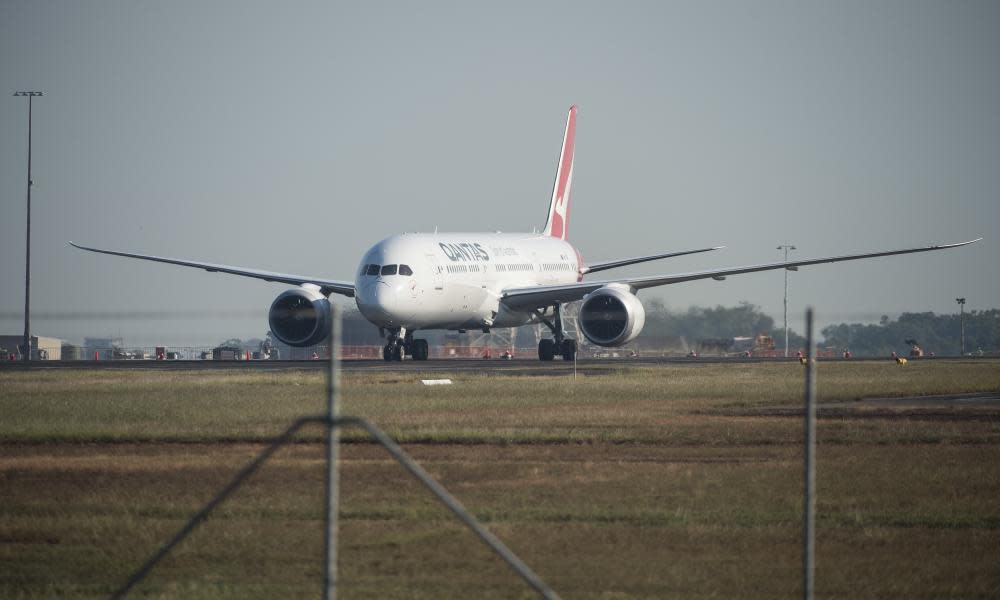Qantas changes lab used to process Covid tests on Australians on India repatriation flight

Qantas will use a different laboratory to screen passengers flying from India to Australia after some of the people stopped from boarding a repatriation flight out of the country later tested negative for Covid-19.
But despite a review revealing “issues” with the laboratory used to process the tests, the airline has stood by the initial results that saw nearly half of the 150 people who had been scheduled to board the first repatriation flight out of Covid-ravaged India denied entry to the flight.
Forty-two people booked on the first repatriation flight, which landed in Darwin on Saturday, tested positive either in PCR tests in the days prior to departure or rapid antigen tests at the gate. Another 30 were barred as their close contacts.
Related: Scott Morrison fends off calls to reopen border as medical association urges ‘plan for 2022’
After reports that a handful of people who had been blocked from boarding the flight had later tested negative for the virus, Qantas initiated a review that included re-running all of the positive test results “under additional medical supervision”.
The company said in a statement late on Tuesday that the results had all come back positive, including some “weak positives that may have been interpreted as negative results by other laboratories”.
The airline said the passengers who tested negative and ultimately flew on the 14 May repatriation flight also received a rapid antigen test prior to boarding, and were tested again by Northern Territory Health after landing at the Howard Springs quarantine facility.
“Both sets of tests validated the original results, with only one additional passenger testing positive at Howard Springs, suggesting this person contracted Covid prior to leaving India but had yet to develop the infection,” the airline said in a statement.
“Considering all of these data points, Qantas and Dfat [the Department of Foreign Affairs and Trade] do not believe that any passengers booked on this flight were denied boarding in error.”
But the airline said its review had also uncovered “issues” with the laboratory used to review the tests.
Qantas had tested passengers in their hotel rooms before boarding their flights, and the medical provider had subcontracted another company, called CRL, to process the results.
The company is accredited by the Indian Council of Medical Research, but the airline said it had since “emerged” that CRL had received a temporary suspension of accreditation for other types of tests in April from the National Accreditation Board for Testing and Calibration Laboratories in India.
The accreditation was not mandatory and CRL continued to provide Covid testing for the Indian government, Qantas said.
Related: Australians who can afford commercial flights from India face less strict Covid testing
“While a small number of passengers found errors in their result paperwork (such as the wrong age or gender), the actual result for each passenger was linked to their Qantas booking number on the flight. Qantas has validated with the lab that no one received the wrong set of results,” the airline said in its statement.
“Qantas is now working with Dfat to prioritise passengers who were unable to board the flight to take up a future flight, once the mandatory 14-day timeframe following a positive test has elapsed.”
Qantas’ chief medical officer, Dr Ian Hosegood, said managing the Covid testing regime in India was “inherently difficult”, and warned that the high infection rates in the country meant “we may see similar levels of positive test results ahead of future repatriation flights”.
“We understand the tremendous stress people relying on these flights are under and that is why Qantas is working with the Australian government to help bring them home,” he said.
“But we have to do that in a way that keeps everyone safe and avoids overwhelming quarantine facilities with a high proportion of positive passengers.”

 Yahoo Movies
Yahoo Movies 
